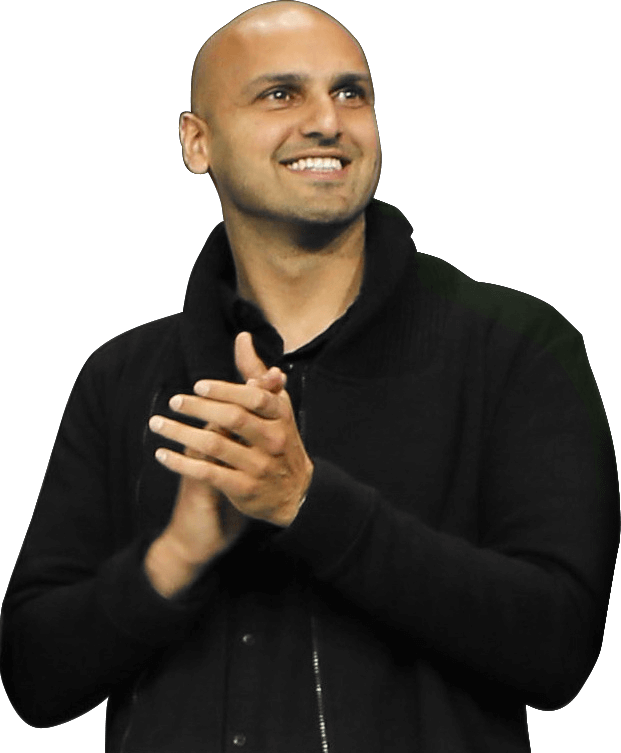Social media content creators are revolutionizing the traditional approach to work. As the workforce shifts from physical to digital, content creation introduces a new era of opportunity for young professionals. Early job seekers are no longer confined to the physical and financial limitations of hourly employment. With increased access to technology and the rapid growth of social networks, anyone can build a digital business and earn an income as a creator online.
Instead of cooking up burgers, tomorrow’s workforce will be cooking up content. An impressive example of this shift is Maddison Peel, a 22-year-old former McDonald’s employee who kickstarted a career in content creation when her cooking videos went viral on TikTok. With no university degree or formal training, Peel quit her $12-an-hour job and built her business as a full-time content creator. She now earns over $10,000 a month.
There are thousands of young creators with similar stories. As the massive demand for content grows rapidly, thousands more creators are anticipated to emerge over the next decade. It’s no longer just entertaining dance videos. These young entrepreneurs are informing, inspiring and educating their audiences. As creators build businesses and grow their audience, brands sharing their target audience are eager to partner with them.
The Unique Advantage of Content Creation
The unique advantage of content creation is that it’s one of the few inclusive careers accessible to anyone, no matter their background, experience or education. All you need to get started is internet access, a social media account and a strong content strategy. Nearly every high school and college student today has access to the internet. Most social media platforms are free. And we have an abundance of experts online teaching everything you need to know to build a content business.
Content creation allows for additional options beyond working minimum wage jobs that have long been overworked and underpaid. Kids now have the opportunity to earn an income early without the requirement of reporting to a physical location or investing a ton of money into a fancy degree.
Technology is automating and eliminating the need for many traditional jobs while simultaneously creating new, more flexible opportunities. It’s a win-win for businesses and job seekers. For example, entry-level jobs such as store clerks and cashiers are being replaced by computers and robots. While social media platforms are bringing consumers online to shop, this creates a unique opportunity for social media marketers to earn affiliate income through sharing those products.
Despite the rapid success of influencers and the global adoption of social media, many adults are still resistant to accepting content creators remaining closed-minded to the long-term viability of social media as a fruitful source of income. While older generations question the emerging trends, younger generations have the home-court advantage. According to TikTok, over half of the platform’s content creators in 2021 were between the ages of 18 and 25 years old. Gen Z and millennials grew up in the digital age. Social media platforms are their playground. They mastered mobile photography and built social networking connections long before graduating high school.
In contrast, there is a steep technology learning curve for many boomers. The rapidly changing landscape of social media leads to confusion and hesitation. This has led to a role reversal between generations. Students are becoming the teachers, as they educate their parents and professors on social media trends and the how-tos of mobile technology.
learning never stops
Before the digital revolution, learning typically stopped after college. It was not unusual for an adult to choose one career path at 18 and continue working for the same company using the same tools for decades. Today, there is an abundance of learning opportunities available for free. It is no surprise many high schoolers are resistant to entering into debt to obtain a college degree or working for someone else. They could learn everything they need online and on the job. Young professionals are outpacing institutions in gaining the knowledge and understanding to succeed in the digital world.
Technology is fundamentally shifting how we educate and acquire knowledge. Students can take content creation masterclasses for free on TikTok and Youtube. They can learn directly from experts on Twitter and LinkedIn. The need for a university degree is solely for the societal accolade to enter the workforce. With the ability to create your own career, the need for a college education becomes obsolete.
Like Peel, I didn’t go to college. I built my business from the ground up without a university degree. My very first job was in sales. I acquired knowledge on the job from direct experience. Throughout my twenties, I became more aware that learning never stops. You don’t need a school building or paid professor to learn new skills, especially with the information available at your fingertips. Life is school, and experience is the greatest teacher.
If students can learn and understand this early, they will have infinite opportunities to make independent decisions and build their own paths. As society begins to accept the new normal and the internet age continues to rise, we can expect the future of employment and education to look drastically different.


